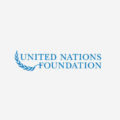Program Intern, FP2030 Internship
JOB DETAIL
Position Overview
Family Planning 2030 (FP2030) is a global partnership of governments, civil society, multilateral organizations, donors, private sector, and researchers committed to supporting the rights of women and girls who wish to use contraception. Our vision is a future where women and girls everywhere have the freedom and ability to lead healthy lives, make their own informed decisions about using contraception and having children, and participate as equals in society and its development. Since our founding in 2012, much has been achieved, but more remains to be done. The global family planning community agreed that the gains of the last nine years should be sustained by extending this pivotal partnership. Through a global consultation, stakeholders from around the world provided their input on the future of family planning. Together, the community created a shared vision for 2030 that builds on progress achieved to date, adapts the partnership in response to the lessons of the first nine years and positions us to achieve the future women and girls around the world are asking for. FP2030 operates as an interconnected Support Network of governance, implementation, and support structures consisting of five regional hubs nested within local organizations: North, West and Central Africa; East and Southern Africa; Asia and the Pacific; and Latin America and the Caribbean, and North America and Europe, led by an Executive Director who reports to the Governing Board. Establishing these hubs and beginning to execute on our ambitious vision is our core work in 2022. By 2030, if the Support Network builds the structure and support for a stronger, more responsive, more inclusive, and more diversified FP2030 partnership, and governments, civil society, donors, and the private sector develop stronger commitments supported by frameworks, tools, and technical assistance for greater implementation and accountability, then we expect: 1. Stronger and more resilient family planning systems: Improved FP services, policies, financing, and transformed social and gender norms through the generation and implementation of robust commitments and strategies toward the FP2030 vision and results statement of modern contraceptive use by anyone who wants it. 2. Greater accountability: Increased accountability and thus more achievement of FP2030 commitments through greater use of the FP2030 accountability framework, approaches, and tools; increased use of family planning data for strategy development, implementation, and progress monitoring; and mobilize private sector and donor efforts to meet the FP2030 vision. 3. A broader base of support for FP: Increased support for family planning through a broader, more inclusive, country-owned partnership; a stronger partnership-building platform for amplifying country, regional, and global agenda-setting efforts; better integration of FP into broader health and development agendas; and mobilization of increased private sector efforts; diversified donor resources and increased domestic financing for family planning.
Essential Functions
- While sitting within the Executive Team, the Program Intern will work across the different portfolios of the FP2030 Team, ranging from the Communications Team, the Data and Measurement Team, and the Advocacy and Partnerships Team.
- Assist the Executive Team in core administrative duties, including sending weekly team updates, tracking webinars and external events, sharing current events related to family planning, and other related tasks.
- Assist the FP2030 team in conducting research and writing to contribute to various team projects, especially regarding the FP2030 Support Network and global events & convenings. This includes work across the Executive Team, the Communications Team, and the Data & Measurement Team.
- Work with the Knowledge Management Team to assist with information organization and tracking communications areas in Salesforce.
- Support the Advocacy and Partnerships Team in liaising with civil society and youth focal points from FP2030 commitment-making countries and potential FP2030 country commitment-makers.
- Support the intake and feedback processes for FP2030 partnership commitments from country governments and especially non-governmental stakeholders, including the use of Salesforce when applicable.
- Support webinars and other external meetings with key global and non-governmental partners.
- Learn administrative and operational aspects of team functionality in a fast-paced work environment, including financial reporting, team logistical organization, and programmatic execution.
- Gain experience working at an international organization during a time of institutional change as the team operationalizes the Support Network.
- Gain exposure to the larger family planning and reproductive health community in Washington, DC and abroad.
Selection Criteria
- Candidate must be enrolled in a degree-granting program during the internship or must be a recent graduate (within 8 months of graduation) of a college or university.
- Ability to work under pressure and handle stress.
- Ability to meet regular attendance/tardiness policy.
- Ability to manage multiple tasks.
- Strong organizational, writing, and communication skills.
- Ability to take initiative and be a self-starter.
- Background in international development/global health/human rights, data, and/or communications preferred.
- Must have a personal laptop computer and access to the Internet.
- Must be available to work a maximum of 29 hours per week.
- Must be authorized to work in the United States.

